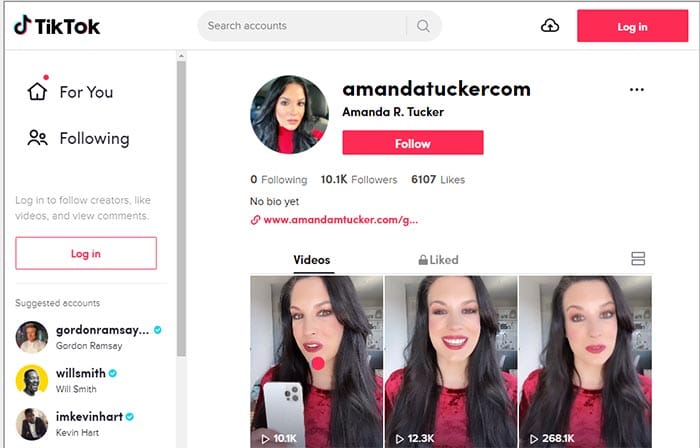Fake giveaway videos becoming more popular on TikTok
Videos falsely claiming to offer prizes like iPhones to users on TikTok just to lure them to spammy websites are becoming increasingly prevalent.
Most of our regular readers will be well aware that posts on Facebook claiming to offer free goodies such as phones, holidays and cars just for sharing and liking a post will more than likely be scams. Scams that are usually designed to lure users off the social platform and onto spammy, telemarketing websites determined to get their grubby hands on your contact details.
It’s a form of like-farming. Luring users into engaging with posts on Facebook using deception, manipulation or exploitation.
But these spammers are increasingly looking to try their luck using the same scam on different social platforms as well. In this case, TikTok.
For example a recent video purporting to give away an iPhone 12 to “randomly selected users” just for clicking a link (randomly selected meaning anyone who stumbled upon the video) managed to attract millions of views in only a handful of hours after being posted. The video, posted by a women identifying herself as Amanda Tucker was asking TikTok users to click a link in her biography to claim their free iPhone.

The profile, now removed, was offering a free iPhone 12 to users who clicked the bio link.
But there was no iPhone. The website, amandamtucker.com, simply redirected to the typical spam telemarketing website designed to lure visitors into handing over their contact details to third party marketing companies, which in turn leads to unsolicited email, calls, texts and mail. There is no free iPhone on offer.
TikTok users who clicked the link and entered their details to get their free iPhone will instead have received lots of unsolicited calls, texts and emails from marketing companies. Probably not what they bargained for.
Sponsored Content. Continued below...
And there are plenty of other videos on the social platform offering up freebies for clicking suspicious links too. In fact a quick search reveals many self-described TikTok influencers, many with millions of followers, promoting free iPhones and other electronics to their followers, all of which can apparently be snapped up by clicking a link. But in all cases that we saw, these links were leading to the same telemarketing websites wanting your contact details to spam you.
This is the same scam we see time and time again on Facebook and elsewhere. It’s a scam that relies on people believing this fallacy that there are companies out there capable of handing out expensive products en masse, all entirely free if you just answer a few questions and give away your contact information.
Don’t fall for these scams. You’re not going to receive expensive products entirely free by visiting suspicious websites and handing out your contact information to whoever asks for it. There are plenty of legitimate promotions on the Internet, but these are orchestrated by reputable brands on their official social media channels.
Remember the adage; if it appears too good to be true, it probably is.
Continued below...
Thanks for reading, we hope this article helped, but before you leave us for greener pastures, please help us out.
We're hoping to be totally ad-free by 2025 - after all, no one likes online adverts, and all they do is get in the way and slow everything down. But of course we still have fees and costs to pay, so please, please consider becoming a Facebook supporter! It costs only 0.99p (~$1.30) a month (you can stop at any time) and ensures we can still keep posting Cybersecurity themed content to help keep our communities safe and scam-free. You can subscribe here
Remember, we're active on social media - so follow us on Facebook, Bluesky, Instagram and X
